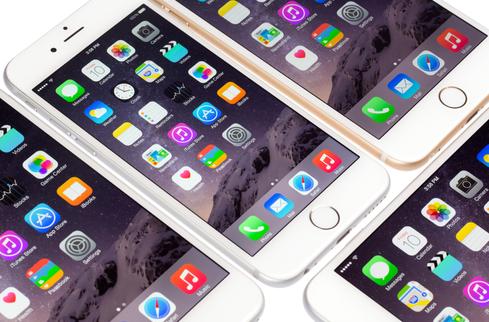Google Secrets Revealed: Paid Apple $1B, Android Raked In $31BGoogle Secrets Revealed: Paid Apple $1B, Android Raked In $31B
Google is seeking to seal court transcripts in its Java patent and copyright infringement case with Oracle after an Oracle attorney disclosed Android generated $31 billion in revenue. Also disclosed, Google paid a hefty sum to Apple to keep the Google search bar on the iPhone.


Best Free iPhone, Android Apps: Our Top 10
Best Free iPhone, Android Apps: Our Top 10 (Click image for larger view and slideshow.)
In the latest twist in its long-standing Java patent and copyright legal battle with Oracle, Google is asking the court to seal transcripts in which an Oracle attorney disclosed that its Android software has generated $31 billion in revenue.
Oracle attorney Annette Hurst not only reportedly disclosed the $31 billion revenue figure during a Jan. 14 hearing in the case, but also revealed that Android generated $22 billion in profits, according to a Bloomberg report.
Google, which has never publicly released Android revenue and profit figures, is alarmed that such information slipped out. It filed a motion Wednesday in the US District Court of Northern California to keep the Jan. 14 hearing transcripts sealed. A section of the court request filed by Edward Bayley, outside counsel for Google, states:
During the January 14, 2016 discovery hearing on Oracle's Motion to Compel (Dkt. No. 1404) counsel for Oracle disclosed information regarding Google's sensitive, non-public revenues and profits associated with Android. January 14, 2016 Tr. at 4:10-13, 6:19-20. This information was derived from internal Google financial documents that Google has designated as "HIGHLY CONFIDENTIAL – ATTORNEY'S EYES ONLY" under the Protective Order that governs this case. Dkt. No. 66. Oracle did not provide any advance notice to Google that it intended to disclose this highly confidential information at the hearing.
Google does not publicly allocate revenues or profits to Android separate and apart from Google's general business. Google considers that non-public financial data to be highly sensitive, and public disclosure of the information described herein could have significant negative effects on Google's business.
Android revenue and profits weren't the only thing that slipped out at the hearing. Oracle's attorney also reportedly disclosed that Apple received $1 billion from Google to keep the Internet giant's search bar on the iPhone, according to Bloomberg.
Google's attorney also noted the damage that may come from that disclosure and suggested that Apple may also weigh in on seeking to seal any financial information that is included in the hearing transcripts:
During the January 14, 2016 discovery hearing, Oracle's counsel also disclosed confidential financial terms of an agreement between Google and non-party Apple Inc. January 14, 2016 Tr. at 29:24-25. This information was derived from deposition testimony that Google has designated as "HIGHLY CONFIDENTIAL – ATTORNEY'S EYES ONLY" under the Protective Order that governs this case. Dkt. No. 66. Oracle did not provide any advance notice to Google that it intended to disclose this highly confidential information at the hearing.
Public disclosure of the Apple-related financial information would severely and adversely impact Google's ability to negotiate, inter alia, similar terms with other third parties in connection with similar agreements now or in the future. In addition to being highly confidential to Google, this information is also subject to a non-disclosure agreement with Apple and constitutes Apple’s confidential information. I understand that Apple may submit a declaration setting forth the reasons why this financial information is highly confidential to Apple, and why public dissemination of this financial information would harm Apple.
Although Google's Jan. 20 request to seal the hearing transcripts was available on the electronic filings site for the US District Court of Northern California, Bloomberg noted that an electronic version of the hearing transcript had disappeared from the site at approximately 3 p.m. PST on the day Google made the request, even though there was no indication that the court had ordered such action be taken.
[Read Google Goes With OpenJDK for Android.]
Meanwhile, Oracle's lawsuit against Google for allegedly violating its Java patents and copyrights when it developed Android may still be far from a final resolution. In July, Oracle filed a motion with the court to update its lawsuit with information regarding Android's marketshare and dominance among operating systems, according to Reuters.
Over the summer, Oracle received a favorable court decision when the US Supreme Court sided with a federal appeals court's ruling that Oracle could seek licensing fees for some of the use of Java by other parties.
About the Author
You May Also Like






